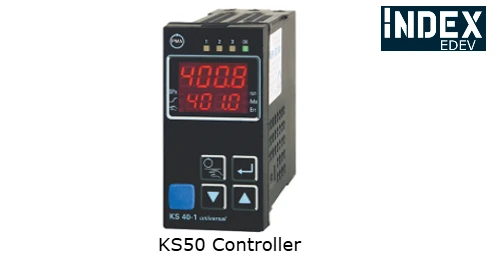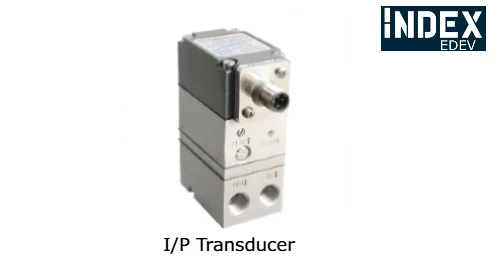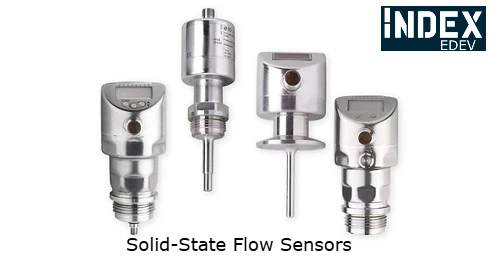Exploring KS40 and KS50: Key Features and Applications of Industrial Temperature Controllers

Overview
In industrial environments where precise temperature control is critical, specialized controllers like KS40 and KS50 offer the reliability and functionality required for optimal performance. Manufactured with advanced control algorithms and customizable settings, these controllers cater to a range of industries, from food processing to pharmaceuticals. KS40 and KS50 are part of a lineup of controllers designed to regulate temperature with exceptional accuracy, while also providing user-friendly interfaces and adaptability for integration into various systems. This article outlines the key features, applications, and distinctions between KS40 and KS50 to help you determine which model best fits your needs.
Overview of KS40 Temperature Controller
The KS40 temperature controller is engineered to offer precise temperature regulation with a focus on simplicity and ease of integration. Known for its durability and performance, the KS40 is suitable for straightforward applications requiring basic but effective temperature control.
Key Features of KS40
- PID Control Algorithm:
The KS40 uses a Proportional-Integral-Derivative (PID) control algorithm, providing precise control over temperature fluctuations. This PID system minimizes overshoot and provides a stable output, which is ideal for consistent process quality. - User-Friendly Interface:
The KS40 is equipped with a clear, digital display, allowing operators to monitor and adjust temperature settings easily. Simple navigation buttons and customizable menus make it user-friendly for technicians and operators alike. - Analog and Digital Inputs:
This model supports both analog and digital inputs, making it compatible with a variety of sensors and systems. The versatility in input types enhances its adaptability in different industrial setups. - Compact Design:
The KS40’s compact and robust design enables easy installation in tight spaces, suitable for panel mounting in industrial environments with limited room. - Alarm and Safety Features:
Integrated alarms help prevent overheating and other temperature-related risks by alerting operators to any deviations from the set parameters. This feature is essential for maintaining process safety and product quality.
Applications of KS40
The KS40 controller is ideal for applications where reliable temperature control is needed without complex customization. Industries that commonly use the KS40 include:
- Food and Beverage Processing: Ensures consistent temperatures during cooking, cooling, and preservation processes.
- Textile Manufacturing: Maintains precise temperatures in dyeing and finishing processes.
- Plastic and Rubber Processing: Controls temperatures in extrusion, molding, and curing applications.
Overview of KS50 Temperature Controller
The KS50 temperature controller builds on the functionality of the KS40 with additional features and customization options, making it suitable for more advanced or dynamic control environments. Designed for greater flexibility, the KS50 can handle complex process requirements with enhanced accuracy and control options.
Key Features of KS50
- Enhanced PID and Adaptive Control:
The KS50 offers an advanced PID control algorithm with adaptive features, allowing it to adjust dynamically to changes in process requirements. This ensures greater accuracy and responsiveness to varying load conditions, even in challenging environments. - Multiple Communication Protocols:
The KS50 supports various industrial communication protocols, including Modbus, Profibus, and Ethernet. This compatibility enables seamless integration into automated and networked systems, making it ideal for Industry 4.0 applications. - Data Logging and Analysis:
Built-in data logging capabilities allow operators to record temperature history and analyze trends, helping to optimize processes over time. This feature is valuable for industries requiring process traceability and compliance. - Advanced Display and Interface Options:
The KS50 provides an enhanced user interface with additional options for customization. Operators can set up the display according to specific requirements, and the larger screen provides a clear view of current and target temperatures, alerts, and system statuses. - Customizable Alarms and Safety Controls:
The KS50 offers highly customizable alarm settings, including high and low temperature limits, rate-of-change alarms, and more. These advanced alarm functions provide a higher level of safety and control for sensitive applications.
Applications of KS50
With its advanced features, the KS50 is suited for applications that demand precise and adaptable temperature control:
- Pharmaceutical Manufacturing: Provides reliable temperature regulation for processes such as mixing, coating, and crystallization, essential for quality control and product consistency.
- Chemical Processing: Manages complex temperature requirements for reactions, distillations, and other sensitive chemical processes.
- Electronics Manufacturing: Controls temperature in soldering, reflow, and other thermal processes to ensure product integrity.
- Industrial Furnaces and Kilns: Maintains specific temperature profiles needed for material treatment and processing, particularly in metalworking and ceramics industries.
Comparing KS40 and KS50: Which is Right for You?
When deciding between the KS40 and KS50 temperature controllers, consider the specific requirements of your process and the level of control complexity needed.
| Feature | KS40 | KS50 |
|---|---|---|
| Control Algorithm | Standard PID | Enhanced PID with Adaptive Control |
| Interface | Basic Digital Display | Advanced Display with Customization |
| Communication | Analog/Digital Inputs | Multi-Protocol Support (Modbus, Profibus, Ethernet) |
| Data Logging | Limited | Available |
| Alarm Options | Standard | Customizable and Advanced |
| Ideal for | Simple to moderate applications | Advanced, complex, or highly regulated environments |
Key Considerations for Choosing KS40 or KS50
When selecting a temperature controller, take into account the following factors:
- System Complexity:
If you need straightforward temperature regulation without extensive customization, the KS40 may be sufficient. For systems requiring frequent adjustments or monitoring, the KS50’s adaptive features and multi-protocol support offer greater flexibility. - Data and Traceability Requirements:
Industries with strict data recording requirements, such as pharmaceuticals or electronics, benefit from the KS50’s data logging and analysis capabilities, which allow for better compliance and quality control. - Integration with Automation Systems:
The KS50’s support for multiple communication protocols makes it a strong choice for automated and IoT-enabled systems. The KS40, while capable of integration, may be better suited for simpler setups where such extensive communication options aren’t needed. - Budget Considerations:
While both models provide excellent temperature control, the KS50 typically comes at a higher cost due to its advanced features. Assess your budget and decide whether the added functionality of the KS50 justifies the investment.
Future Trends in Industrial Temperature Controllers
Temperature controllers are evolving alongside advancements in industrial automation and connectivity. Here are a few trends to watch:
- IoT and Remote Monitoring:
As industries increasingly adopt IoT solutions, controllers like the KS50 with network connectivity are becoming essential. Real-time remote monitoring enables operators to manage systems more effectively, minimizing downtime. - Artificial Intelligence in Control Systems:
AI-driven control algorithms are being developed to enhance adaptive control features, allowing controllers to learn and optimize temperature settings based on historical data and predictive analytics. - Energy Efficiency Focus:
Advanced temperature controllers are being designed to optimize energy use, especially in high-energy applications. By using adaptive algorithms and predictive control, these controllers help reduce energy consumption while maintaining precise temperature. - Integration with Smart Manufacturing:
As Industry 4.0 gains traction, controllers that support standardized communication protocols are essential for integrated, data-driven production lines. Controllers with strong interoperability, such as the KS50, are leading the way in smart manufacturing environments.
Conclusion
KS40 and KS50 temperature controllers each offer unique benefits suited to different industrial needs. The KS40 is a reliable, straightforward controller ideal for applications where basic temperature regulation suffices, while the KS50 provides enhanced control features, data logging, and communication capabilities for more complex environments. By understanding the distinct functionalities of these controllers, you can make an informed choice that meets your system's needs for precision, adaptability, and connectivity.
As temperature control technology evolves, the KS40 and KS50 demonstrate the versatility and precision required to support a wide range of applications, from food processing to advanced manufacturing. Whether you choose the KS40 for its simplicity or the KS50 for its comprehensive capabilities, both controllers bring accuracy and efficiency to industrial temperature management.


